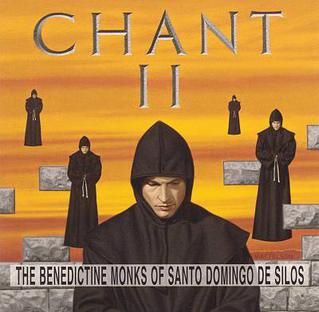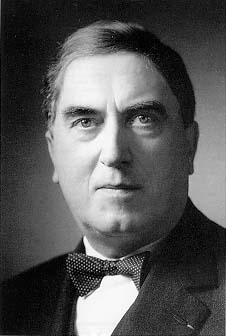Paschale Mysterium is Latin for "The mystery of Easter". The words have been used as the title of albums of Gregorian chant for Easter.
Paschale Mysterium is Latin for "The mystery of Easter". The words have been used as the title of albums of Gregorian chant for Easter.
| Paschale Mysterium | |
|---|---|
| Studio album | |
| Recorded | 1976 |
| Genre | Gregorian chant |
An album entitled Paschale Mysterium was issued as a vinyl record in 1977; it was re-released by Sony Records in 1998. The music was sung by the German choir Capella Antiqua München directed by its regular conductor Konrad Ruhland.
Several samples of the album were used without permission for the album MCMXC a.D. by Enigma. An example is the antiphon "Procedamus in pace!" which was used in the track "Sadeness (Part I)". The track appeared as a single in late 1990, shortly before the album was released. After a lawsuit in 1994, compensation was paid.
There is also a similarly titled album on Naxos released in 1997. It is sung by the Italian women's choir Aurora Surgit plus a male cantor.
Plainsong or plainchant is a body of chants used in the liturgies of the Western Church. When referring to the term plainsong, it is those sacred pieces that are composed in Latin text. Plainsong was the exclusive form of the Western Christian church music until the ninth century, and the introduction of polyphony.

Gregorian chant is the central tradition of Western plainchant, a form of monophonic, unaccompanied sacred song in Latin of the Roman Catholic Church. Gregorian chant developed mainly in western and central Europe during the 9th and 10th centuries, with later additions and redactions. Although popular legend credits Pope Gregory I with inventing Gregorian chant, scholars believe that it arose from a later Carolingian synthesis of the Old Roman chant and Gallican chant.

In music, monophony is the simplest of musical textures, consisting of a melody, typically sung by a single singer or played by a single instrument player without accompanying harmony or chords. Many folk songs and traditional songs are monophonic. A melody is also considered to be monophonic if a group of singers sings the same melody together at the unison or with the same melody notes duplicated at the octave. If an entire melody is played by two or more instruments or sung by a choir with a fixed interval, such as a perfect fifth, it is also said to be monophony. The musical texture of a song or musical piece is determined by assessing whether varying components are used, such as an accompaniment part or polyphonic melody lines.

Enigma is a German musical project founded in 1990 by Romanian-German musician and producer Michael Cretu. Cretu had released several solo records, collaborated with various artists, and produced albums for his then-wife, German pop singer Sandra, before he conceived the idea of a new-age, worldbeat project. He recorded the first Enigma studio album, MCMXC a.D. (1990), with contributions from David Fairstein and Frank Peterson. The album remains Enigma's most successful, helped by the international hit single "Sadeness ", which sold twelve million units alone. According to Cretu, the inspiration for the creation of the project came from his desire to make a kind of music that did not obey "the old rules and habits" and presented a new form of artistic expression with mystic and experimental components.

The Introit is part of the opening of the liturgical celebration of the Eucharist for many Christian denominations. In its most complete version, it consists of an antiphon, psalm verse and Gloria Patri, which are spoken or sung at the beginning of the celebration. It is part of the proper of the liturgy: that is, the part that changes over the liturgical year.

MCMXC a.D. is the debut studio album by the German musical project Enigma, led by Romanian-German musician Michael Cretu. It was released in Europe by Virgin Records on 3 December 1990, and in the United States by Charisma Records on 12 February 1991. Cretu became fascinated with mixing archaic sounds with modern music after producing German pop singer Sandra's song "Everlasting Love", for which he experimented with Gregorian chant. Following Michael Cretu and Sandra's marriage in 1988, Michael developed the idea of the musical project Enigma and recorded the album over the course of eight months in 1990 at A.R.T. Studios.
In chant, a reciting tone can refer to either a repeated musical pitch or to the entire melodic formula for which that pitch is a structural note. In Gregorian chant, the first is also called tenor, dominant or tuba, while the second includes psalm tones as well as simpler formulae for other readings and for prayers.

"Sadeness (Part I)" is a song by German musical project Enigma, released in October 1990 by Virgin Records as the lead single from their first album, MCMXC a.D. (1990). It was written by Michael Cretu, Fabrice Cuitad and Frank Peterson, and produced by the latter. The song features French lyrics whispered by Cretu's then-wife, Sandra and became an international hit, reaching number one in 14 countries. In the United States, it peaked at number five on the Billboard Hot 100 and number one on both the Dance Club Play and 12-inch Singles Sales charts. Its music video was directed by Michel Guimbard, featuring a scribe dreaming of wandering into The Gates of Hell. A sequel to the song, "Sadeness (Part II)" featuring Anggun, was released on Enigma's eighth studio album, The Fall of a Rebel Angel (2016).
Ambrosian chant is the liturgical plainchant repertory of the Ambrosian rite of the Roman Catholic Church, related to but distinct from Gregorian chant. It is primarily associated with the Archdiocese of Milan, and named after St. Ambrose much as Gregorian chant is named after Gregory the Great. It is the only surviving plainchant tradition besides the Gregorian to maintain the official sanction of the Roman Catholic Church.

Beneventan chant is a liturgical plainchant repertory of the Roman Catholic Church, used primarily in the orbit of the southern Italian ecclesiastical centers of Benevento and Monte Cassino distinct from Gregorian chant and related to Ambrosian chant. It was officially supplanted by the Gregorian chant of the Roman rite in the 11th century, although a few Beneventan chants of local interest remained in use.
Jubilate Deo is a small hymnal of Gregorian chant in the Latin Rite of the Catholic Church, produced after the liturgical reforms of Vatican II. It contains a selection of chants used in the Mass and various liturgies, as well as Marian antiphons and seasonal hymns.
Procedamus in pace! is a Gregorian chant. The text includes a quotation from Psalm 24:7-8. It is traditionally sung by the deacon before a procession.
Konrad Ruhland was a German musicologist.
"Ubi caritas" is a hymn of the Western Church, long used as one of the antiphons for the washing of feet on Maundy Thursday. Its text is attributed to Paulinus of Aquileia in 796. The traditional melody probably also stems from the late 8th century. It is now and then sung at Eucharistic Adoration and Benediction of the Blessed Sacrament and has for a long time been part of the Holy Thursday evening liturgy. The current Roman Catholic Missal reassigned it from the foot-washing mandatum to the offertory procession at the Holy Thursday evening Mass of the Lord's Supper. It also is found in current Anglican and Lutheran hymnals.

"Rorate caeli" or "Rorate coeli" are the opening words of Isaiah 45:8 in the Vulgate. The text appears at several points in the Christian liturgy of the Western Church during Advent.
The Celtic mass is the liturgy of the Christian office of the Mass as it was celebrated within Celtic Rite of Celtic Christianity in the Early Middle Ages.

Chant Noël: Chants for the Holiday Season is a compilation album of plainsong sung in Latin by the Benedictine monks of Santo Domingo De Silos under the direction of Francisco Lara. It was released in November 1994 by Angel Records, following the success of Chant which had been released earlier the same year. As well as a number of items sung at Christmas, the album features Ubi Caritas, which is associated with Easter.

Chant II is a 1995 album of Gregorian chant, performed by the Benedictine monks of Santo Domingo de Silos in Burgos, Spain. It is a follow-up to the 1994 release Chant, the best-selling album of Gregorian chant. Like the first album, it included material which had been recorded by the monks some years previously.

Quatre Motets sur des thèmes grégoriens, Op. 10, are four sacred motets composed by Maurice Duruflé in 1960, based on Gregorian themes. He set Ubi caritas et amor, Tota pulchra es, Tu es Petrus and Tantum ergo.
Haec dies quam fecit Dominus, or This is the day which the Lord hath made, may refer to: